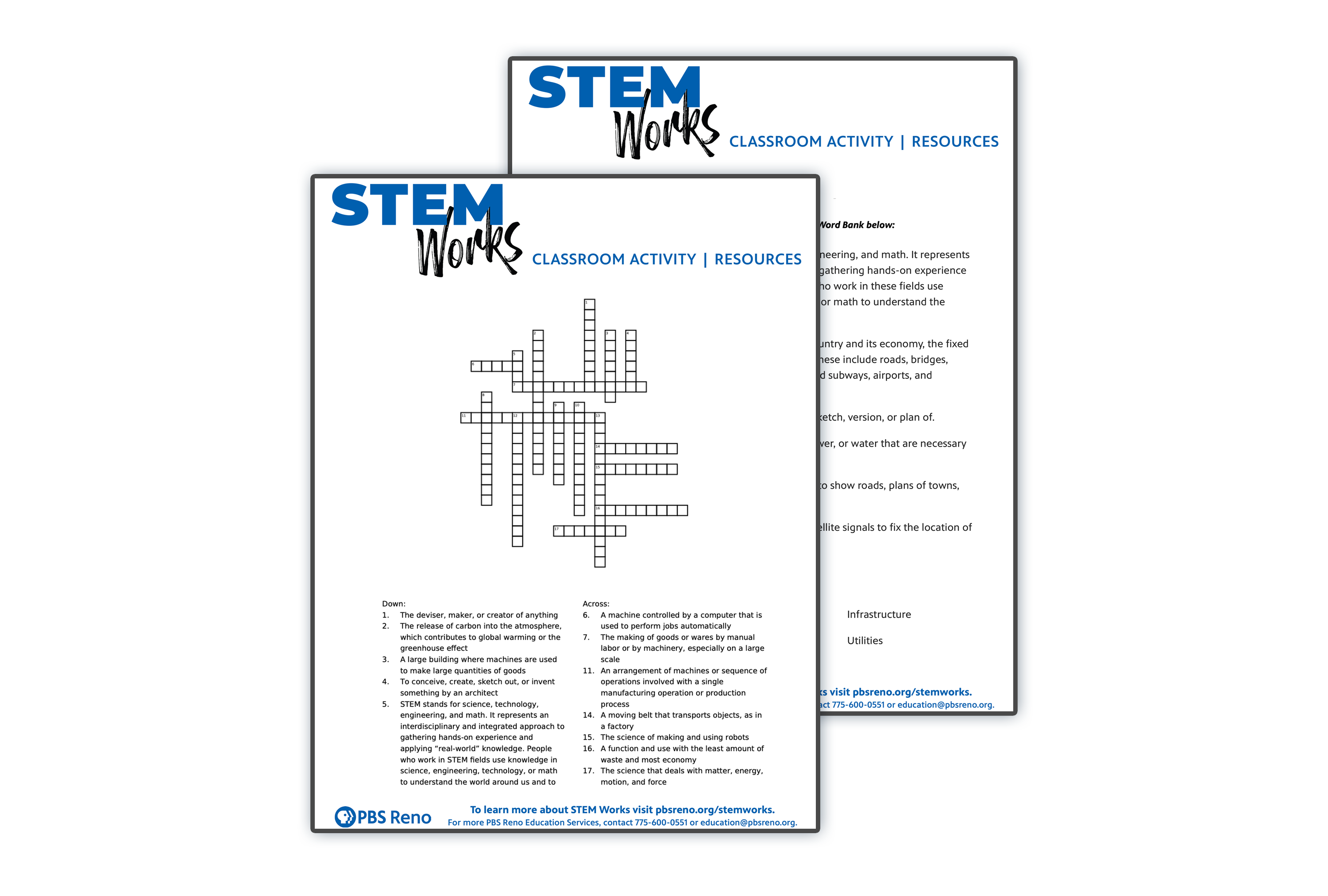PBS Reno STEM Works | Truckee Meadows Water Authority
What it takes to work as a chemist or water treatment operator, keeping our water clean.
GLOSSARY
STEM — STEM stands for science, technology, engineering, and math. It represents an interdisciplinary and integrated approach to gathering hands-on experience and applying “real-world” knowledge. People who work in STEM fields use knowledge in science, engineering, technology, or math to understand the world around us and to solve problems.
Utilities— Services (such as light, power, or water) provided by a public utility company.
Purify — To clear from contaminants, material defilement or imperfection.
Contaminant — Something that is or that makes impure.
Pristine — Clean, unsullied, without contamination.
Turbidity — Cloudiness, opacity, clearness of water or other fluid.
Chemist — Someone who does chemistry, usually as a profession.
Flocculation — A process that clumps and settles particles out of solution.
Sedimentation — The action or process of forming or depositing particles.
Filtration — The process of removing contaminants in an effort to purify.
Reservoir — An artificial lake where water is collected and kept in quantity for use.
Water main — A pipe or conduit for conveying water.
PH — A reading signifying how acidic or basic a solution is.
Analysis — A detailed examination of anything complex to understand its nature or to determine its essential features.
Operator — One that operates a machine or device.
Reactions — A response to some treatment, situation, or stimulus – in this case chemical.
Periodic table — An arrangement of chemical elements based on the periodic law.
ICPMS — Inductively Coupled Mass Spectrometer: a scientific instrument used to measure elements at very high temperatures.
Journeyman — A worker who has learned a trade and works for another person usually by the day.
Chemistry — A science that deals with the composition, structure, and properties of substances and with the transformations that they undergo.
